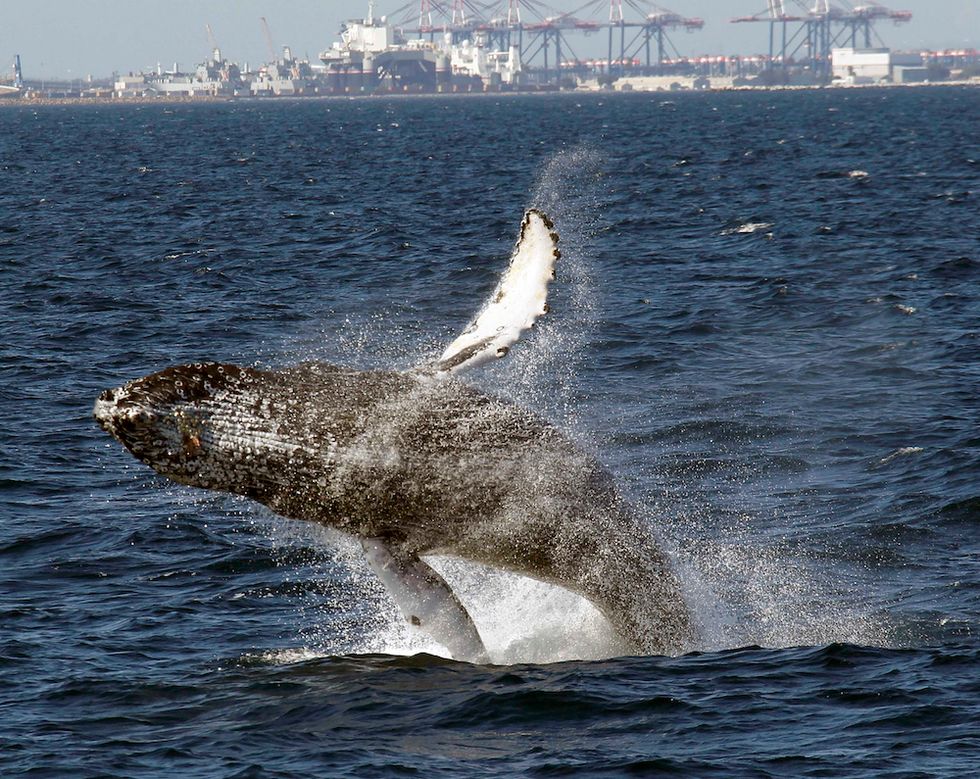
AP Photo/Nick Ut

HONOLULU (AP) — Federal authorities took most humpback whales off the endangered species list Tuesday, saying their numbers have recovered through international efforts to protect the giant mammals.
Humpback whale numbers have steadily grown since a global ban on commercial whaling started nearly 50 years ago. The whaling moratorium remains in effect, despite the new classification.
The National Marine Fisheries Service said it first had evidence to indicate there were 14 distinct populations of humpback whales around the world. It then said nine of these populations have recovered to the point where they no longer need Endangered Species Act Protections. These include whales that winter in Hawaii, the West Indies and Australia.
Before, the agency classified all humpback whales as one population. They had been listed as endangered since 1970.
"Today's news is a true ecological success story," Eileen Sobeck, assistant administrator for fisheries at the National Oceanic and Atmospheric Administration, said in a statement.
The whales will continue to be protected under other federal laws, including the Marine Mammal Protection Act. Vessels will continue to have to stay a specific distance away from humpback whales in Hawaii and Alaska waters.
A Hawaii fishermen's group that petitioned for delisting three years ago said it was happy with the decision.
"We just saw a lot of whales. So we thought this is a success in ocean management and we wanted to point that out to the world — that things are good with whales in Hawaii," said Phil Fernandez, president of the Hawaii Fishermen's Alliance for Conservation and Tradition.
An estimated 11,000 humpback whales breed in Hawaii waters each winter and migrate to Alaska to feed during the summer, the fisheries service said.
But an environmentalist group said the protections should stay in place.
"These whales face several significant and growing threats, including entanglement in fishing gear, so ending protections now is a step in the wrong direction," Kristen Monsell, an attorney with the Center for Biological Diversity, said in a statement.
Humpbacks that breed in Central America in the winter and feed off California and the Pacific Northwest in the summer are among those that will remain on the endangered list.
Marta Nammack, the fisheries service's Endangered Species Act listing coordinator, said that's because the population is estimated at only about 400 whales. These whales also face threats from vessel collisions and getting entangled in fishing gear, she said.
Whales that breed off Mexico and feed off California, the Pacific Northwest and Alaska will be listed as threatened. There are about 3,200 of the whales in this group, which is only about half of what scientists previously thought, Nammack said. The whales also face fishing gear entanglement threats.
—